When the Mission to Seafarers began in the 1830s, at the port of Bristol, England, the goal was then, as it is today, "to care for the spiritual, physical and emotional needs of all seafarers and their families." Seafarers, who run the container ships and other cargo ships, bring us 90% of what we have in our typical households and lives. In doing that, they are isolated from their families and the rest of society spending many months at sea, sometimes 12 to 16 months and more.
The Mission to Seafarers is a ministry of 'presence' and 'hospitality' by leaders in different faiths visiting seafarers on their ship, listening and letting them know we care, by providing centres a 'home away from home' where they can go and relax, speak with family, watch TV, play pool, send money home, buy a snack or two. We provide transportation to take them to the centre or to the mall. The Mission also advocates for seafarers, keeping a watchful eye on conditions on board and helping them know their rights.
The Mission to Seafarers has a local board of directors which works with Rev. Peter Smyth, as the Senior Chaplain, to fulfil its mandate with a team of people, including chaplains, interns, employees and volunteers. Support also comes from being a part of a worldwide organization of the Mission to Seafarers, present in 200 ports, in many cases partnering with other societies that also care for seafarers.
 Rev. Peter Smyth is Senior Port Chaplain Anglican Church of Canada for The Mission to Seafarers at Port of Vancouver, including Delta Port. Having grown up in Northern Ireland, he has lived and traveled in India, Nepal, and Germany.
Rev. Peter Smyth is Senior Port Chaplain Anglican Church of Canada for The Mission to Seafarers at Port of Vancouver, including Delta Port. Having grown up in Northern Ireland, he has lived and traveled in India, Nepal, and Germany. He was then ordained in Christ Church Cathedral (Church of Ireland - Anglican) in Dublin where he assisted at the Mission to Seafarers as a student reader. Starting his career as Curate at St Brigids Stillorgan and All Saints Blackrock, Dublin, he moved to Canada in January 2001 to become the incumbent in St Michael and All Angels Anglican in Thunder Bay, Ontario, where his two sons were born. He moved to Sault Ste Marie, Ontario 10 years later to served as incumbent at Holy Trinity Anglican Church.
In 2016 he moved to Vancouver to take the position of Senior Chaplain with the Mission to Seafarers.
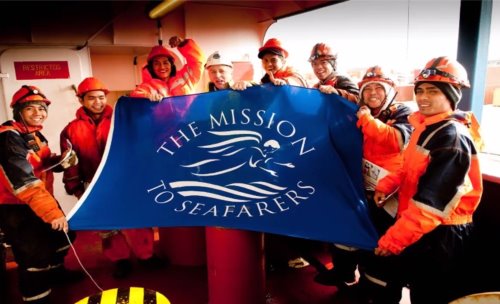 | 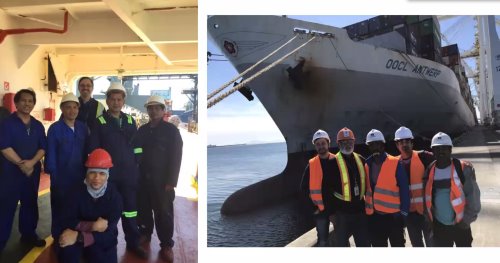 |
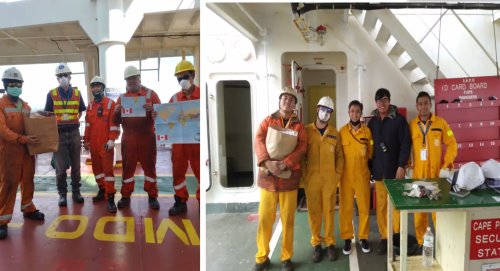 | 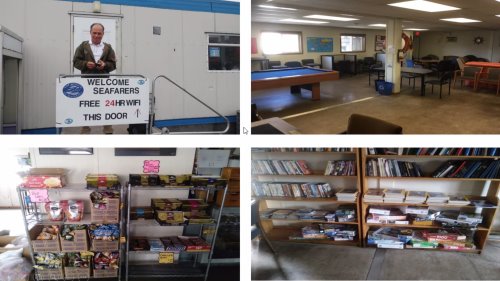 |
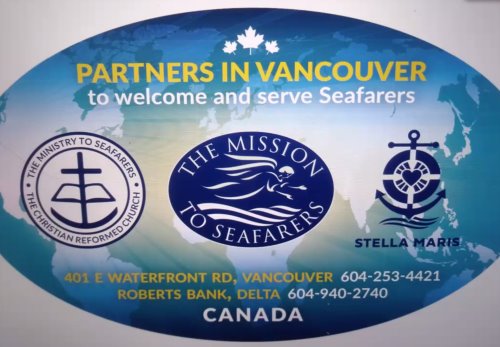 |  |
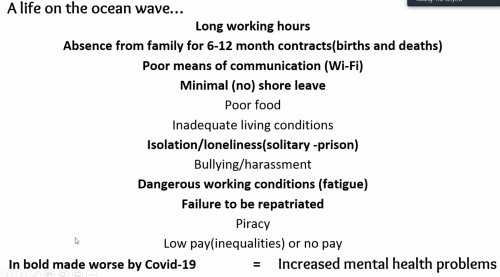 | |
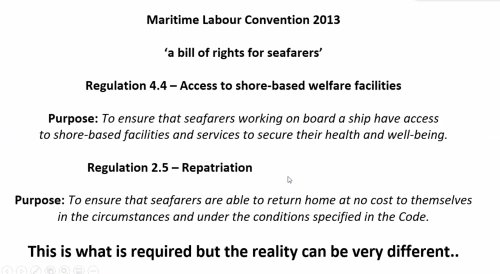 | |
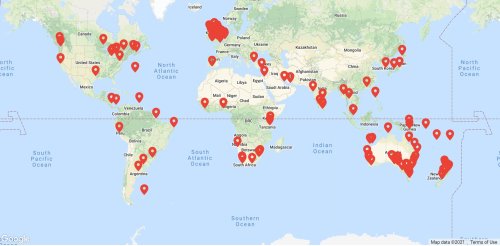 | |
One can define a seafarer as someone who actively works on any type of marine vessel or who has a long history of serving in this field. There are 1.5 million international seafarers or more worldwide.
At the centre of our global economy is the supply of goods and fuels, of which more than 90% is transported around the world, thanks to seafarers. Without them the world economy would grind to a halt, threatening businesses and millions of jobs around the world.
Life on board ship is tough and often dangerous for seafarers. They often have to endure extreme weather conditions, particularly during the cold winter months and the frightening experience of piracy at sea in key places around the world, leading to mental health issues. While living conditions have improved over the years, cabins are functional rather than spacious and vary in quality and comfort. Seafarers face long working hours, long contracts and whilst they are entitled to their own nationality food, sometimes this is not catered for.
For some international seafarers from lower income families, life at sea is a route out of poverty, enabling them to provide a better life for their families at home with sometimes up to 15 people, and is worth the sacrifice of time away from them. Long term voyages, however, can leave them isolated from friends, family and loved ones for up to nine months at a time, sometimes many months more. Communication back home can be a problem for many seafarers because of varying degrees of access to Wi-Fi on ships or in port. Extended periods away from home can put a strain on relationships with loved ones as well as on mental health. This has been particularly so during the pandemic.
The Mission to Seafarers provides training courses in long-distance communication with loved ones through its WeCare social communications course. It provides vital help and support to seafarers as they undertake their work so essential to our economy way of life.
Offering practical and emotional support and spiritual guidance when asked, the Mission provides to all seafarers regardless of nationality, faith or no faith, with the aim of providing as much help as possible at over 200 sea ports across 50 different countries.